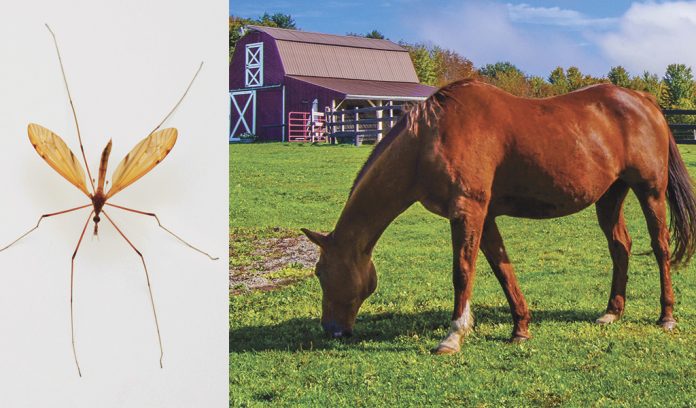REYNOLDSBURG, Ohio — Ohio Department of Agriculture State Veterinarian Dr. Tony Forshey recently confirmed one case of Eastern equine encephalitis in a horse in Ashtabula County. He urges horse owners to contact their veterinarian to ensure their horses’ vaccines and boosters are up-to-date. EEE is spread through mosquitoes and can also affect people, so taking steps to manage the mosquito population, such as eliminating standing water, will also help prevent EEE and other vector-borne viruses, like West Nile virus,” said Forshey.
The virus responsible for EEE is transmitted to horses by mosquitoes and attacks the animal’s central nervous system. In horses, onset is abrupt and usually fatal.
Symptoms
The diseases can cause unsteadiness, erratic behavior a marked loss of coordination and seizures. Horses are particularly susceptible, but the virus can also cause serious illness in people and other animals, such as poultry and deer.
Animals sick from EEE are a sign that people should also take steps to guard themselves against mosquitoes by applying repellent and wearing protective clothing. The disease is rare in humans, and only a few cases are reported in the United States each year. There are no confirmed human cases associated with this outbreak in Ohio.
Suspect horse cases should be reported to a veterinarian as soon as possible. For more information on EEE, visit www.cdc.gov/EasternEquineEncephalitis/gen/qa.html.










